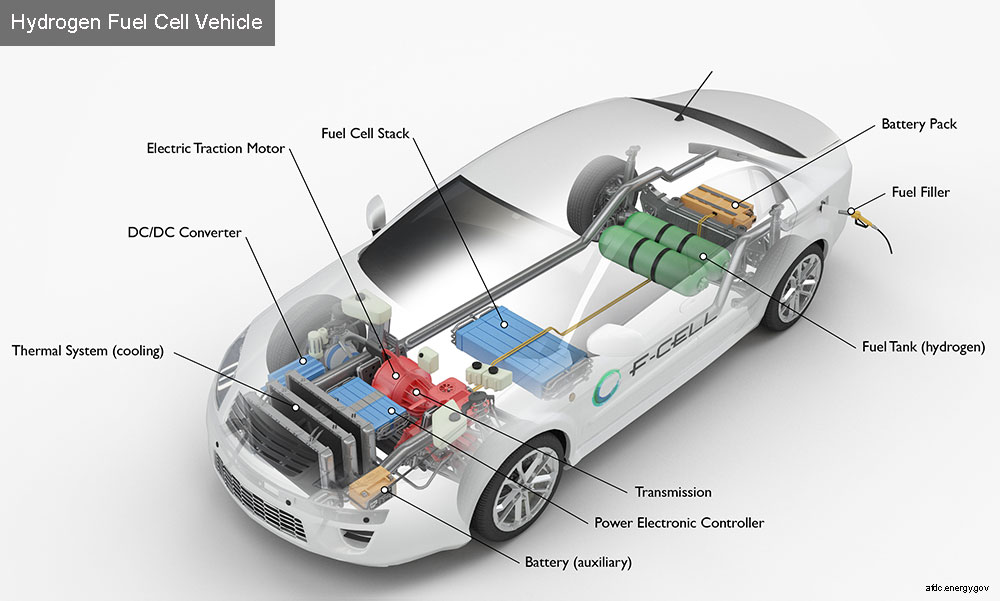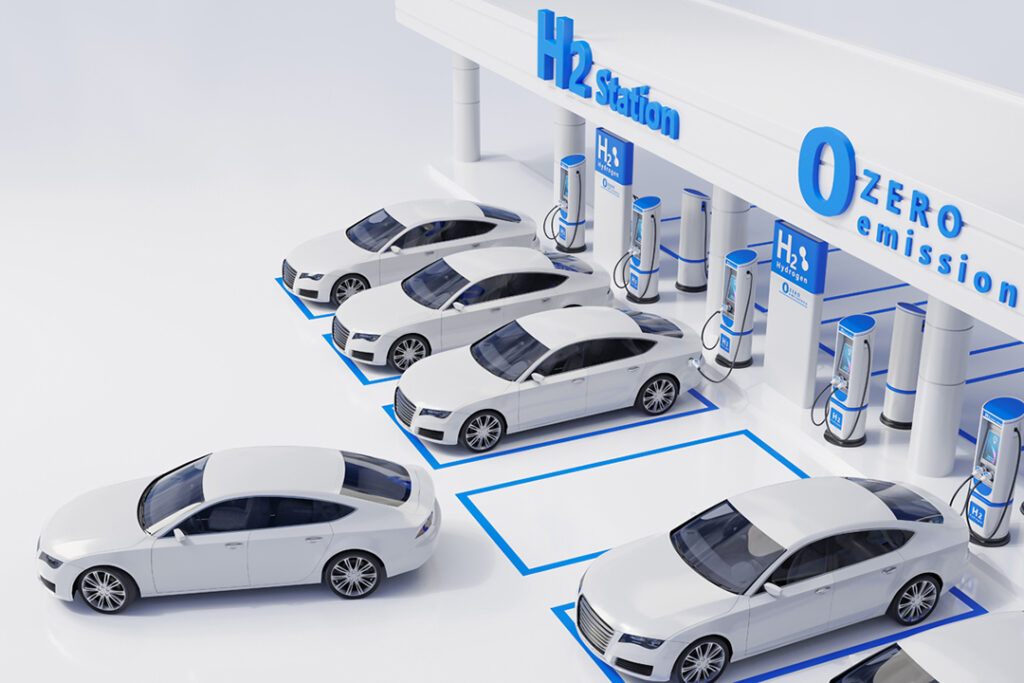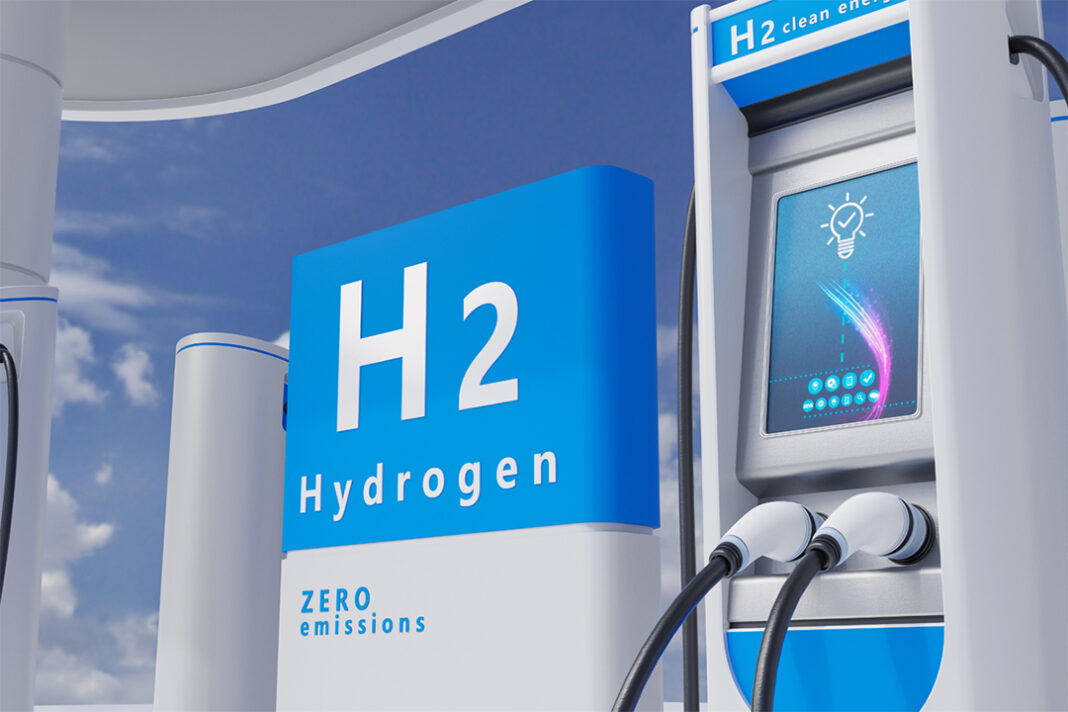The use of hydrogen as a fuel source for vehicles dates back to 1807 when Isaac de Rivaz designed a hydrogen-fueled internal combustion engine. Today, hydrogen vehicles have come a long way, with notable models such as the Toyota Mirai, Hyundai Nexo, and Honda Clarity, as well as hydrogen-powered buses in London and forklift trucks, gaining popularity. These vehicles are most commonly found in the UK, where the government actively finances the development of hydrogen-powered vehicles.
How Hydrogen Vehicles Work: Technology and Functionality
At the heart of hydrogen vehicles are hydrogen fuel cells, which function similarly to lithium-ion batteries used in electric vehicles. Hydrogen gas is fed into fuel cells and combines with oxygen in a chemical process called reverse electrolysis, generating electricity that powers the electric motor and moves the wheels. The speed of the vehicle determines the type of power used, with two effective methods in play: the battery (known as a Peak Power Battery) and the fuel cells.
During slow driving, the engine utilises only battery power. For faster driving, the fuel cells use hydrogen to produce electricity, drive the motor, and recharge the battery. When facing more demanding tasks such as uphill movements, both methods work in tandem to power the vehicle’s engine. Hydrogen is a potent fuel source, surpassing the energy density of petrol or diesel.
Similar to traditional gas or petrol stations, hydrogen refuelling stations serve as dispensaries for pressurised hydrogen. The refuelling process for current hydrogen vehicle models takes less than ten minutes, as the hydrogen source is connected to the car tank and filled. In the UK, the average cost of hydrogen is currently around £10 per kg, comparable to petrol prices.
The Benefits of Hydrogen Vehicles
Hydrogen vehicles offer a fresh alternative to petroleum and battery-powered vehicles, with several notable advantages. One major benefit is the emission of non-harmful byproducts, as fuel cell electric vehicles (FCEVs) only produce water (H2O) from the contact between hydrogen ions and oxygen. This makes the emissions relatively clean and free from harmful pollutants, solving the issues of recreational and environmental pollution associated with traditional vehicles’ exhaust emissions.

Another advantage of hydrogen-powered vehicles is the speed of refuelling. Compared to charging an electric car, it takes only 3-5 minutes to fuel a hydrogen-powered vehicle, making it a convenient option for drivers. Additionally, fuel cell power does not deteriorate over time like lithium-ion batteries, making them durable and long-lasting. Hydrogen vehicles also have a good speed range of about 300 miles per tank, similar to many petrol vehicles, with some high-end models like the Hyundai Nexo reaching up to 400 miles per tank.
Furthermore, the efficiency of fuel cells in harnessing energy from oxygen is higher compared to conventional vehicles using energy from petrol or diesel. Hydrogen vehicles are also user-friendly, with quiet engines that are easy to start, similar to electric cars.
Challenges and Future Outlook
Despite the numerous benefits, hydrogen vehicles face some challenges. One major challenge is the limited availability of refuelling locations, with less than 20 hydrogen refuelling stations currently available in Britain. This can make refuelling a hydrogen-powered vehicle or bus a tedious task, limiting their widespread adoption.
Another challenge is the high cost of developing hydrogen fueling technology. While refuelling is quick, hydrogen is difficult to store and transport, and it can only be produced on-site, adding to the overall cost. Additionally, hydrogen is highly flammable, requiring crash-resistant tanks and extra safety precautions to prevent severe explosions in case of accidents.
Despite these challenges, there is growing acceptance of hydrogen-power technology in vehicles, with car manufacturers such as Mercedes Benz planning to release new hydrogen-powered models in the near future. Moreover, governments and organisations around the world are investing in research and development to further advance hydrogen fuel cell technology and increase the availability of refuelling stations.

One of the most promising developments in recent years is the use of renewable energy sources to produce hydrogen, known as green hydrogen. By using renewable energy, such as solar or wind power, to power the process of electrolysis that separates hydrogen from water, the production of hydrogen can become more sustainable and environmentally friendly. This could address the concern of hydrogen production contributing to carbon emissions, making hydrogen vehicles a truly clean and renewable transportation option.
Another exciting development is the integration of hydrogen fuel cell technology in other sectors beyond transportation. Hydrogen has the potential to be used for power generation, heating, and as a storage medium for excess renewable energy, creating a versatile and multi-purpose energy carrier. This could further drive the demand for hydrogen and spur innovation in its production, storage, and utilisation.
Furthermore, there are ongoing efforts to address the issue of limited refuelling infrastructure. Governments and private companies are working together to expand the network of hydrogen refuelling stations, especially in regions where hydrogen vehicles are gaining traction. For example, the UK government has announced plans to invest £3 billion in hydrogen technology, including the construction of new refuelling stations across the country, aiming to have 1,000 hydrogen buses and 1,000 hydrogen refuelling stations by 2030.
In conclusion, hydrogen vehicles have come a long way and hold great promise as a clean and sustainable transportation option. Despite challenges such as limited refuelling infrastructure and high production costs, advancements in technology and increasing investment in hydrogen fuel cell research are driving the growth of hydrogen vehicles. With further developments in renewable hydrogen production and expanded refuelling infrastructure, hydrogen vehicles could play a significant role in the future of transportation and contribute to a more sustainable and environmentally friendly mobility solution.





